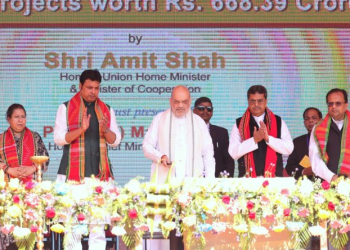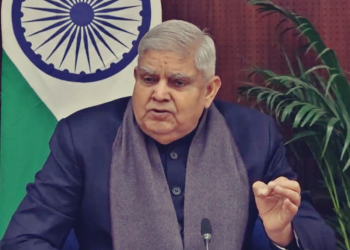New Delhi: The Supreme Court on Friday said that receiving foreign donations cannot be an absolute or even a vested right, and free and uncontrolled flow of foreign contribution has the potential of impacting the sovereignty and integrity of the nation.
The observations came as it upheld the constitutional validity of the Foreign Contribution (Regulation) Amendment Act, 2020, which imposed restrictions on the way foreign contributions are handled by Indian organisations
A bench, headed by Justice A.M. Khanwilkar and comprising Justices Dinesh Maheshwari and C.T. Ravikumar, said: “There is no fundamental right vested in anyone to receive foreign contribution (donation) or foreign exchange.”
Justice Khanwilkar, who authored the judgment on behalf of the bench, said: “Indubitably, foreign contribution is qualitatively different from foreign investment. Receiving foreign donations cannot be an absolute or even a vested right. By its very expression, it is a reflection on the constitutional morality of the nation as a whole being incapable of looking after its own needs and problems.”
Upholding the series of amendments made by the Centre in Foreign Contribution (Regulation) Act, 2010, to regulate the acceptance and utilisation of foreign funds by NGOs, associations, and individuals and also to trace the utilisation of the funds, the bench noted that serious concern about the impact of widespread inflow of foreign contribution on the values of a sovereign democratic republic had been repeatedly expressed at different levels, including in the Parliament.
Philosophically, foreign contribution is akin to gratifying intoxicant replete with medicinal properties and may work like a nectar, it said. “However, it serves as a medicine so long as it is consumed (utilised) moderately and discreetly, for serving the larger cause of humanity. Otherwise, this artifice has the capability of inflicting pain, suffering and turmoil as being caused by the toxic substance (potent tool) a” across the nation,” it added, in the 132-page judgment.
The bench pointed out that the purport of the principal Act and the impugned amendments are only to provide a regulatory framework and not one of complete prohibition. It said that there was unanimity amongst the members of both the Houses cutting across party lines to have such a strict regime as indiscriminate receipt/inflow and more so utilisation of foreign contribution had been threatening the sovereignty and integrity of the country itself.
“In that, free and uncontrolled flow of foreign contribution has the potential of impacting the sovereignty and integrity of the nation, its public order and also working against the interests of the general public,” said Justice Khanwilkar.
The bench pointed out that statement of objects and reasons for the amendment Act of 2020 makes it amply clear that the annual inflow of foreign contribution had almost doubled between 2010 and 2019 and many recipients of foreign contribution had not utilised the same for the purposes for which they were registered or granted prior permission under the Act.
It cited how many recipients had also failed to adhere to and fulfil the statutory compliances – which resulted in cancellation of as many as 19,000 certificates of concerned persons/organisations during this period.
Justice Khanwilkar said: “It is open to a sovereign democratic nation to completely prohibit acceptance of foreign donations on the ground that it undermines the constitutional morality of the nation.”
The bench said earlier transfer of foreign contribution was permitted as per the unamended provision, and that by itself cannot be the basis to challenge the validity of the amended provision. “For, it is open to the Parliament to change the benchmark of restriction from higher standard to lower standard or vice versa on the basis of the exigencies and experience gained during the implementation of the applicable provision at the relevant time,” it added.
It said the argument of the writ petitioners about lack of rational nexus with the object sought to be achieved by the Principal Act, much less the Amendment Act, must also fail.
The top court judgment came on petitions challenging provisions of the FCRA Amendment Act prohibiting transfer of foreign funds (Section 7), requiring Aadhaar as identification for prior approval, registration etc (Section 12A), while also, mandating opening of an FCRA primary account exclusively in a branch of State Bank of India, New Delhi, notified by the Centre (Section 17).
(IANS)





















